
We are pleased as punch to be participating in the blog tour for Kelly Murphy’s new book, Historical Heartthrobs, and it’s exactly what it sounds like—a book about the lives and times of attractive men and women from the course of human history, with a healthy helping of photos to supplement the text. Our tour stop will be today, and we’ll feature our review of the book and an interview with the author for your reading pleasure! We were relieved to discover that we were not the only nerds in high school who daydreamed about which of the historical figures we were learning about would make the best imaginary boyfriends, and so to celebrate this and lead up to our review of the book, we were inspired to create our own top 10 lists of historical heartthrobs. Read on to learn about our picks and decide for yourself whether they measure up! Let's start this party with...
Alyssa's List!
- Frederick Douglass. We formulated our lists prior to paging through the book, but I was very happy to see that the author and I had this one in common. A former slave abolitionist leader AND a supporter of women’s suffrage? There’s not much sexier than a guy who supports equal rights for all. Add to that his skills as a writer and orator (along with that mane of gorgeous hair), and I may need to fan myself. To add some flames to the fire, here’s a powerful quote from him regarding abolition: “It is not light that we need, but fire; it is not the gentle shower, but thunder. We need the storm, the whirlwind, and the earthquake.” Yowza! This is one guy who would definitely impress your parents if you brought him home for dinner.
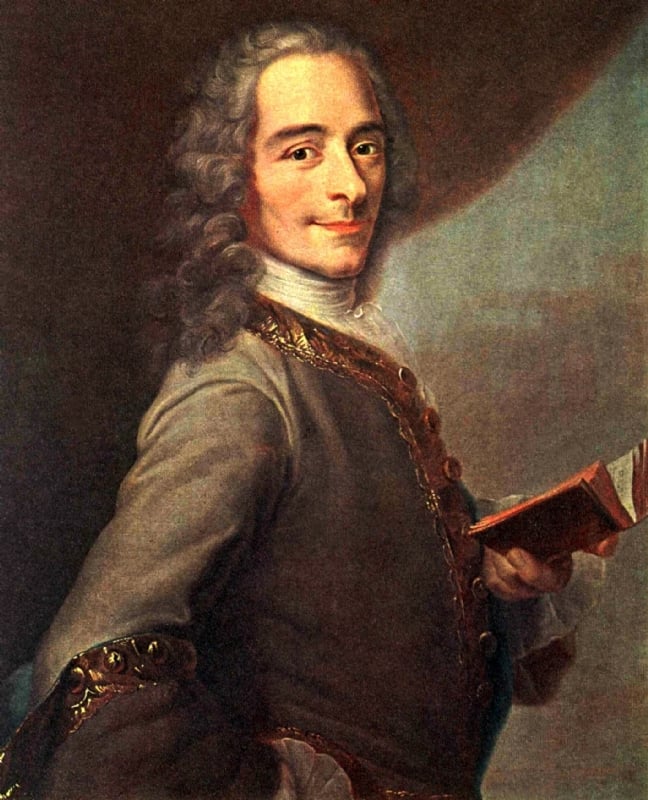
- Voltaire. Okay, so maybe his looks aren’t your cup of tea, but you’ve got to admit he’s kind of cute in a fluffy, 18th century French dude sort of way. Perhaps more attractive is the playful, mischievous quirk to his smile that hints at his wit and sense of humor? Whatever you think of his looks, this guy was a prodigious writer and philosopher of the Enlightenment, but don’t be fooled into thinking that means he was a boring fuddy-duddy. Au contraire (see what I did there?), he was a first-rate satirist who aligned the religious establishment firmly in his crosshairs and touted religious freedom, supported the now-standard separation of church and state, and generally spoke out against intolerance. As you can imagine, this made him a lot of enemies, but he didn’t let that get him down. Throw him the Bastille? He’ll take advantage of the free time and pen a new play! Send him to prison again? He’ll manipulate the system and get shuttled off on an extended vacation to Britain instead! His Candide was perhaps the only required reading in college that actually made me laugh out loud, and was certainly the only text in a particularly torturous French philosophy class that was both instructive and entertaining. Brains, strong belief in what is right, and a sense of humor to boot? Meow!

- Alexander Hamilton. In my high school AP US History class I remember thinking he was the bee’s knees, but of the many portraits to be found of him on the internet, I prefer the one from the good ol’ $10 bill. Looks aside, though, I think what drew me to him was the awesomeness of The Federalist Papers and the work he did to get the US Constitution ratified. In fact, according to the internet, the interpretations of the Constitution found in The Federalist Papers are still very influential. While some (both today and contemporaneously) might not agree with his stance of greater federal power at the expense of the individual states and viewed him as leaning dangerously close to monarchy, his force as a founding father cannot be denied. And while he did have an extramarital affair that led to him resigning his post, he ‘fessed up and reportedly became even closer with his wife afterwards. But we all know how his story ends—in a duel with Mr. Sour-Grapes-Wounded-Pride himself, Aaron Burr. Weird dueling rituals aside, Hamilton might not be absolutely perfect husband material, but it’s hard to gainsay the attraction of a man of his convictions.

- Jean-Paul Sartre. Okay guys, I know what you’re thinking, but stick with me. He might not be the most handsome fella around, but what he lacks in physical hotness he would more than make up for in scintillating conversation. Another French philosopher (I might have a type…), this time of the mid-ish 20th century, Sartre was all about existentialism. To give you a sense of it without digging out my 20th C. French Lit. notes, he had all kinds of interesting ideas about humanity and existence that are fun to ponder—things like humans being condemned to freedom resulting from the lack of a Creator, our ultimate responsibility for our own actions…y’know, light stuff like that. As with Voltaire, I am impressed by anyone who can make philosophy interesting to me, and Sartre’s plays Huis clos (“No Exit”) and Les mouches (“The Flies”) remain some of my favorite French readings from college. He is responsible for the phrase oft-quoted and oft-interpreted-without-perhaps-the-right-nuace, “L’enfer, c’est les autres,” or, “Hell is other people.” It might all sound very depressing, but I maintain a conversation with him would be intellectually stimulating rather than soul-crushing. I like clever, intelligent, thinky word structurements and often the people who produce them, and Simone de Beauvoir would probably agree with me, as she had a long, mutually open relationship with Sartre. While he might not have been monogamous, neither was she, and the strength of their relationship outlasted any dabbles with other people. They are buried together, which is kind of sweet.

- Paul Éluard. He was a French poet and founder of the surrealist movement, and boy, do I love me some surrealists. In addition to being my almost-birthday-twin, Éluard was inspired by Walt Whitman (oh, the connections!) and rubbed shoulders with such luminaries as André Breton, Louis Aragon, Man Ray, Picasso, and Magritte. He also rubbed shoulders, albeit in a different sense, with his wife Gala and Dadaist Max Ernst when they had a ménage a trois living arrangement together, though Gala eventually left him for Salvador Dalí. What drama! Aren’t surrealists fun? During World War II he was involved in the French Resistance, which is awesome, but later in life he joined the French Communist Party and eulogized Stalin, which is less awesome. Still, the dreamlike images and emotional power of his poems are arresting, and those concerning love are especially impactful without ever straying into saccharine territory. For example, here’s an excerpt from “The Earth is Blue,” which might seem a rather straightforward idea for a surrealist, until the first line finishes the thought with “like an orange.” At any rate, here’s the quote: “You have all the solar joys/All the sunshine on earth/On the paths of your beauty.” And since everything looks better in French: “Tu as toutes les joies solaires/Tout le soleil sur la terre/Sur les chemins de ta beauté.” Swoon!
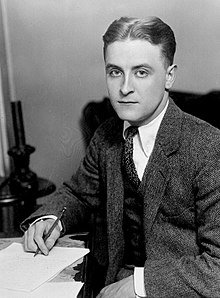

- F. Scott Fitzgerald (as played by Tom Hiddleston). Who can resist the lure of the great American novelist? From a physical standpoint, he looks a little like a slightly sinister Daniel Radcliffe, so I often find myself thinking of him instead as played by Tom Hiddleston in Midnight in Paris…but from an intellectual standpoint, the pull of the man who epitomized the glittering lifestyle of the Jazz Age and the lows of the Lost Generation is undeniable. He distilled these experiences into stories with a visceral impact that appealed to both critics and the public, and to this day The Great Gatsby may well be the book most universally loved by students despite being on the class syllabus. Not that he wasn’t without problems—he often had financial difficulties, his relationship with his wife Zelda was tumultuous, and he was a notorious alcoholic. So maybe he’s not the man you’d want to settle down with or bring home to Ma and Pa, but you can bet he’d be great to both party with and debate the finer points of life and writing.
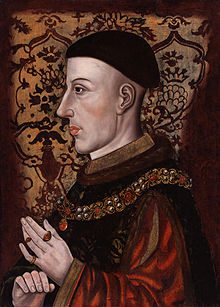
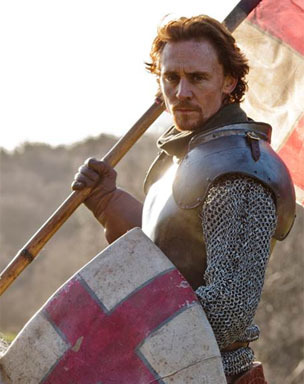
- Henry V (as played by Tom Hiddleston in The Hollow Crown). Okay, this one comes perilously close to cheating, and you may be noticing a pattern. The Henry V depicted in Shakespeare’s “Henriad” cycle of historical plays probably has some important differences from the actual Henry V of England, but these plays are called the histories, right? So that means this specific version of Henry V is a viable historical heartthrob, right?!? As you can see in the images above, one is a bit more of a treat to look at than the other (hint for casting directors: if you want to make any male character immediately more likeable, cast Tom Hiddleston). But if we’re going with Shakespeare’s Hal incarnation of Henry V, it’s important to note that he was kind of a drunken playboy for awhile. And he did abandon his friend Falstaff, even if it was so that he could finally grow up and become a worthy king. But a worthy king he did become (if you interpret taking over France to be an action denoting worthiness?), and his speeches to his soldiers are rousing, if not particularly heartthrobby. No, the heartthrobby bit comes at the end of the play in his adorable attempts to woo the French princess Katharine/Catherine of Valois. The sweetness and earnestness of his broken French is enough to stave off even my objections to the love-at-first-sight-iness of what he says, and it was swoon-worthy enough for me to bend the rules and include this semi-historical, semi-literary figure on the list.
- William Howe. This one is a shout-out to my high school self. I can vaguely remember a minor fascination with him in the aforementioned AP US History class, and I seem to remember including him in a political cartoon assignment. Aside from that, I remembered nothing and had to turn to Wikipedia to refresh my memory. What I found was not particularly heartening—a British general during the Revolutionary War, he won the Battle of Bunker Hill at great cost, became Commander-in-Chief of the British forces, captured both New York City and Philadelphia, and then resigned and went back home after some poor campaign planning later in the war. His overconfidence going into Bunker Hill was criticized, and after that costly victory he supposedly had issues with self-confidence. Later in life he became the 5th Viscount Howe but died without children, and so the viscountcy died with him. All in all, a bit of a bummer story, and I am perplexed at what my high school self saw in him (isn’t that always the way of it?). Was it an attraction to his bad-boy redcoat leader reputation? A bit of a sympathy crush due to his crisis of confidence? We may never know.
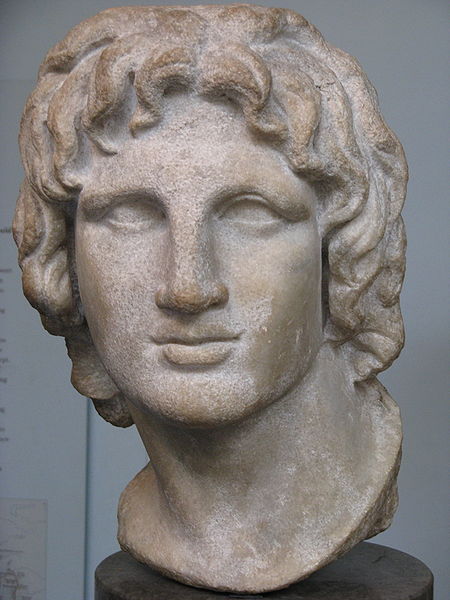

- Alexander the Great. While author Kelly Murphy opted not to include Ancient world hotties in her book due to the lack of accurate (photographic) representations available, we had no such qualms. How could we possibly ignore the Ancient world with Classics major Susan around? Thus we come to the second Alexander to grace my list, and ye gods, is he handsome. Not only that, but he had brawn and brains to back up his pretty face. As a teen, the future Macedonian king was tutored by none other than Aristotle, and when he ascended the throne after his father’s assassination he began to forge an empire that would stretch all the way from Greece to what is now Pakistan. Educated? Check. Brave? Check. Intelligent and ambitious? Check and check. It sounds like he could be the complete package, but he unfortunately died at the age of 32. You know what they say—live fast, die young.

- Natsume Soseki. Is it a surprise that most of my historical heartthrobs are writers of some kind? Natsume Soseki was a novelist of the Meiji period (mid-1800s to early 1900s), and many consider him to be the greatest writer in modern Japanese history. He has also influenced many important Japanese authors since then, and in that way he’s slightly analogous to F. Scott Fitzgerald. In addition to his literary talents in his native tongue, he also mastered English and spent some time living and studying in London (although he didn’t really like it there). Multilingualism is always a plus for me, and the themes in his work would make for some intense conversation. Add his dapper style on top of that and he’s definitely a date-worthy guy, with the possibility for a romance as epic as his moustache. That’s only if you aren’t hoping to put a ring on it, though—on the occasion of his marriage he purportedly informed his wife that he was a scholar and had no time to fuss over her. Ouch. Fun fact: He used to be on the Japanese ¥1000 yen note, the same way Alexander Hamilton lives on the near-equivalent US $10 bill!

And now we move on to Susan's categorized list of historical politicians...because apparently she's really turned on by power, and struggles to love anyone historical who didn't leave behind a mountain of personal papers and policies. (Though honorable mentions for her included some art-focused people from Langston Hughes to Shah Jahan. Along with another list of politicians whom she knows less about than the ones who made this list.)
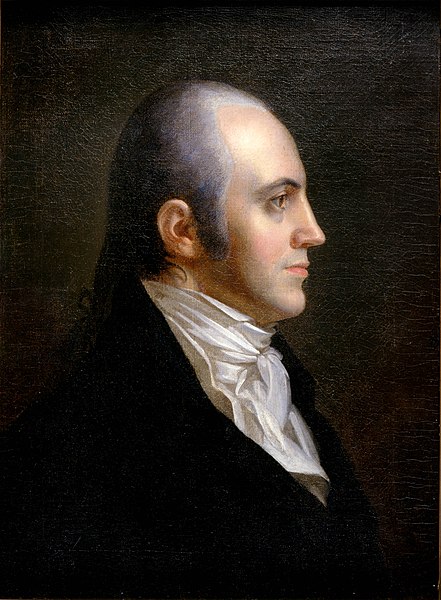
Aaron Burr. There is something about Aaron Burr’s profile that attracts me. Is it his chin? The smirk playing on his lips? His eyes that are looking at something you can’t see? The slope of his nose? I can’t figure it out, but I think his is the most handsome portrait on the cover of Founding Brothers. At the very least, it is the one with the most secrets playing out in the features. And Burr is a totally mysterious and kind of dangerous guy. This is a man who was nearly elected president (thanks to confusion about the Electoral College proceedings), fought an illegal duel with a political opponent, and possibly plotted to commit treason and/or invade Mexico and become its monarch. The other founders (regardless of their political party) tended to distrust Burr, but it turns out he was a lot more principled than they portray him: Burr was unfailingly fair in the impeachment trial of Samuel Chase, and was one of the few populist, antislavery and feminist voices in the early American republic. It seems that historians have traced Burr’s downfall to Jefferson’s paranoia that Burr was trying to steal the Election of 1800, and by the time of the treason trial in 1807, “the president’s hatred for Burr bordered on the pathological” (Smith 2000). So heartthrob summation: this is a guy who hung a portrait of Mary Wollstonecraft in his house, made sure his daughter got a Classical education, fought for his honor (and won! Take that, Hamilton-who-chose-to-use-pistols-that-killed-his-son), and dealt with some pretty messed up power plays by Jefferson. Score!

John C. Calhoun. I may have exaggerated Burr’s physical attractiveness, but Calhoun at the age of 40 was hot. In high school when I would get frustrated with the overly poetic writing in my AP US History textbook, I would turn to check out the Calhoun picture again. Thick wavy brown hair, piercing and intelligent eyes, cheekbone structure to die for . . . With the cravat and muttonchops, he looks similar to Colin Firth’s Darcy. I may have turned to this picture frequently. I was obsessed with Darcy at the time, and the book used trite sun metaphors every few pages.
It’s possible that you remember Calhoun from his decades as one of the Great Triumvirate of the Senate, during which time he adopted a crazy hairstyle (thus killing his physical beauty) and extraordinarily ugly policy (all to preserve the institution of slavery, which he thought was a “good” thing), but the young Calhoun was far more attractive. Young Calhoun was brilliant, gentlemanly, and above the sectionalism that was taking over politics at the time. Even John Quincy Adams, a misanthropic prodigy, wrote positively of Calhoun’s intelligence and principles. As Secretary of War under James Monroe, Calhoun opposed General Andrew Jackson’s illegal invasion of Spanish Florida, and formed the Bureau of Indian Affairs to negotiate treaties without having to deal with Congressional delays and political posturing. Sadly, Calhoun became disillusioned with the Federal government, both for its inefficiencies and for its tariff policy that damaged the Southern agricultural economy while favoring Northern industry, and a concurrent break with President Jackson over some absurd personal matters fully alienated Calhoun from nationalist thinking and launched his new career as an ardently pro-slavery senator. But we can gaze admiringly at his 1822 portrait, knowing that he had at least some admirable traits and beliefs then.

Marcus Tullius Cicero. Cicero is practically the Ned Stark of history: idealistic and moral till decapitation. Living in the age of Julius and Octavian Caesar, Pompey the Great, and Crassus the Too-Rich, Cicero played a dangerous game of moderate politics with some of the most immoderate statesmen in Rome, and ultimately lost. And wow, did he play that game well.
Unlike most of his political foes, Cicero was not from the upper tier of Roman politics; he was a middle-class guy from the provinces whose greatest ambition was to lead the Republic and watch his family rise through the social ranks. Working his tail off, Cicero became the leading lawyer of Rome, and built up a small fortune and political machine of his own to ascend to the Consulship, in which role he saved the Republic from a dastardly treasonous plot. His fiery speeches against Cataline and Verres show his power at its strongest and most morally sound (nobody likes to support people undermining the Republic or abusing their position as a provincial governor), but he becomes a true heartthrob when you read his personal letters, where he shows off, teases, plots, laments, and lives.
I fell in love with Cicero after reading his (very artful and not entirely natural) letter to Marius about Pompey’s games. It is a masterpiece of concern for his friend, sarcasm about Pompey’s lavish games, and sentiment about the humanity of elephants. On the more natural side of letter writing, there is a sequence of letters in 48 BC to his wife, and each one is short and preoccupied with his daughter’s health. When his Tulliola dies about a year later, Cicero’s heartbreak is enough to convince you that if he loved you half as much as his daughter, you’d have a devoted partner.
“In this lonely place I do not talk to a soul. Early in the day I hide myself in a thick, thorny wood, and don’t emerge till evening. Next to yourself solitude is my best friend. When I am alone all my conversation is with books, but it is interrupted by fits of weeping, against which I struggle as best I can. But so far it is an unequal fight.” (Ad Atticus XII.15, Shackleton Bailey trans.)
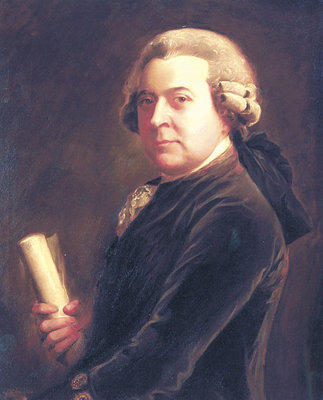
John Adams. John Adams is my first love. We met while I watched 1776 at the tender age of four, and it was love at first song. Alyssa may specify that her historical crushes must be played by Tom Hiddleston, but I say John Adams is worth checking out without any specific actor in mind. Let’s face it: he’s smart, ethical, madly in love with his wife, hardworking, and self-doubting but arrogant. If you think this all sounds very familiar, it’s because I have a type, and specifically because John Adams spent a good deal of time considering how awesome Cicero was, and mirroring Cicero’s life as far as possible. Arguably by luck, Adams survived to the ripe age of 90, despite unpopularly defending the British troops in Boston, spearheading the independence movement in the Continental Congress, and being massacred in a propaganda war led by Jefferson.
Adams’s prose is not all that elegant, but his correspondence with Abigail reveals a marriage of two ideally matched people, and brings out his humor and tenderness in a way you can’t find otherwise. The more I read of him, the more I love him.

Prince Albert of Saxe-Coburg and Gotha. I visited Victoria and Albert’s Osborne House on the Isle of Wight back in 2011, and by the time I left a few hours later, I was obsessed with Albert. I blame the historical site for displaying sweet and sentimental excerpts of the pair’s diaries and letters in the foyer—they gave such a sense of immeasurable love between the two that I got teary-eyed. Everyone knows that Victoria went into deep (and endless) mourning when Albert died at 42, and when you consider what he accomplished it’s a little surprising that the rest of the world didn’t join in. On his deathbed, the man was editing the diplomatic correspondence between Britain and the Confederacy; without his contributions Britain likely would have been embroiled in the US Civil War.
Albert was the ultimate Victorian gentleman. Aside from being skilled at organization and management, Albert had interest in science, art, politics, philanthropy, agriculture, and everything else in between. You would think this would make him a total stick in the mud (and if you listened to the English aristocracy of the time, you’d hear he was one), but even if English hunting parties and pool games bored him, Albert loved to play with his children—even in the mud of a child-size play fort on the grounds of Osborne. Like many of the other people on my list, Albert fell afoul of the thinking of his time, but his social reform efforts, establishments of museums, and appreciation of Darwin hold up to modern examination and add to the general attraction of a brilliant and curious guy who plays with his kids.
On a more shallow note, the biography I read of Albert and Victoria said that Albert was considered the most attractive man in Europe at the time of his wedding to Victoria, after having spent his teen years developing his physique to attract her. For me the appeal is the thick, wavy, dark brown hair. I have a type.


Theodore Roosevelt. TR is the Prince Albert of America. No, really. Very smart, well-read, passionate in love, hands-on-parent, associated with acquisitions for a museum, desirous of greater world peace, high up in politics, into social reform, against wasteful inefficiency, died too young. The major difference between them is that TR seems infinitely more animated in standard pictures than Albert does. Perhaps this is simply because of advances in photography, but it’s likely that TR had more of a sense of humor than Albert, and the much readier smile of a politician. My favorite thing about the house he had built on Long Island is the way that the children's bedrooms are connected. I can easily picture the chaos as they ran through the rooms, likely being chased by their father, the biggest child of the pack.
TR is notable for his achievements in cracking down on crime in New York City, starting the conservation movement, passing progressive legislation, and ensuring the completion of the Panama Canal. All of this is total heartthrob material. TR is also known for a sense of wild adventure. This is less heartthrobbing in a romantic sense and more in a “DON’T DIE” sense. (He came pretty close when he was exploring a tributary of the Amazon.)
Added bonus: Appearance-wise, TR looked pretty hot as a 17-year-old: the muttonchops here seem to define his square bone structure. As an adult, I can’t say TR looks as good, but the look he has while posing with his children makes me happy.







No comments:
Post a Comment